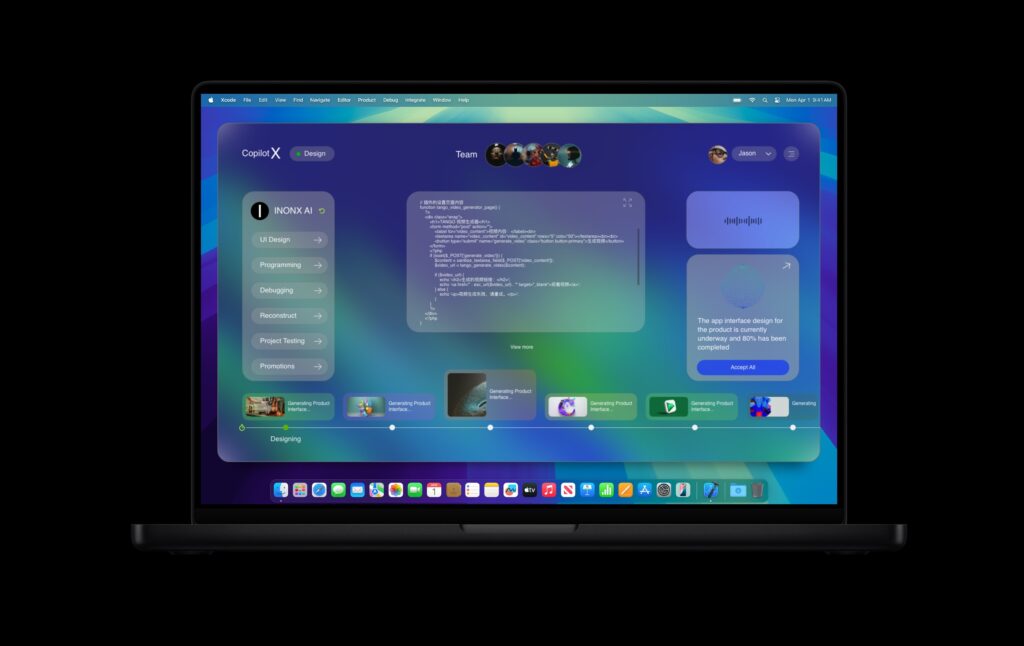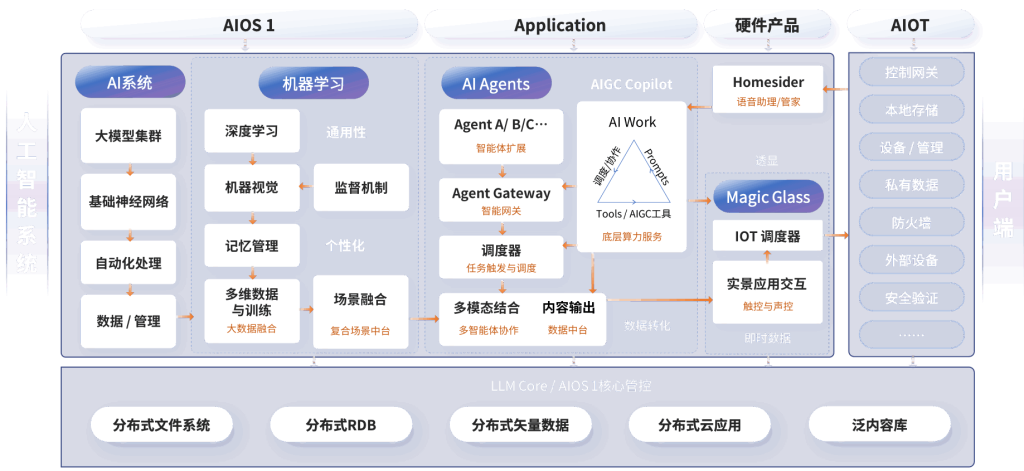Artificial Intelligence (AI) has transformed the landscape of numerous industries by enabling powerful automations and agentic workflows. Modern AI technologies, such as AI large models, multimodal AI agents, and AI voice assistants, are paving the way for a new era of efficiency and intelligence in the workplace. This article delves into various aspects of AI automations, AI agents, agentic workflows, and full work automation, addressing definitions, current developments, value, applications, and industry-specific use cases.
.
**Understanding AI Automations and Their Impact**
AI automations refer to the use of AI tools and algorithms to automate tasks that traditionally require human intervention. These automations streamline workflows, reduce operational costs, and enhance productivity. For example, AI-driven systems can efficiently handle repetitive tasks like data entry and analysis, paving the way for more strategic work by human employees. This shift creates an opportunity for businesses to reassign their workforce to more complex problem-solving tasks.
In recent years, AI tools have evolved significantly. Both small startups and large corporations are leveraging these advancements to gain competitive advantages. The versatility of AI systems played a crucial role in integrating technology across various sectors, driving key developments and applications in finance, healthcare, and manufacturing.
.
**AI Agents and Agentic Workflows: Redefining Interactions**
AI agents are autonomous entities designed to perform tasks on behalf of users, often utilizing natural language processing, machine learning, and data analytics. These agents can operate independently or assist humans in completing tasks, thereby improving the overall workflow and efficiency within organizations.
Agentic workflows represent the seamless collaboration between AI agents and human workers. By automating routine functions and analyzing data in real time, these agents can make recommendations, facilitating quicker decision-making. This synergy is particularly beneficial in fast-paced industries where speed and precision are critical.
AI agents are commonly employed in various sectors. For instance, customer service departments use AI voice assistants for handling inquiries, providing users with immediate assistance while allowing human representatives to focus on more complex customer needs. Companies like Amazon have successfully integrated AI agents in their businesses, leading to enhanced customer experiences and reduced operational costs.
.
**The Rise of Full Work Automation: Opportunities and Challenges**
Full work automation takes the concept of AI automations to its ultimate extent, where entire processes or workflows are automated with little to no human involvement. This encompasses various functions, including data analysis, reporting, and even creative tasks within organizations. The prevalence of AI large models facilitates the development of sophisticated full work automation systems capable of learning from historical data and improving over time.
Despite the clear benefits, the rise of full work automation raises concerns. Many experts have voiced apprehension about job displacement and the ethical implications of relying heavily on AI technology. It becomes pivotal for organizations to balance automation with human oversight to maintain the quality and ethical standards of their outputs.
Studies have highlighted that while some jobs may become automated, new opportunities will emerge in higher-skilled sectors. The transition towards full work automation requires a comprehensive strategies for workforce reskilling and upskilling.
.
**The Auto-Works Platform: A New Paradigm**
The Auto-Works platform represents a new wave of integrated AI applications designed to manage workflows, connect various AI tools, and enhance productivity. These platforms centralize multiple AI functionalities, enabling seamless interactions between agents, automations, and users.
Various industries are beginning to benefit significantly from the implementation of Auto-Works platforms. For instance, in the finance sector, organizations are utilizing AI for financial forecasting, automating risk assessments, and fraud detection. In healthcare, AI for health data analysis empowers practitioners to make data-driven decisions swiftly, leading to improved patient outcomes.
Additionally, companies leveraging sensor networks for robots in manufacturing can create more intelligent systems and optimize production lines. These advancements streamline operations and increase efficiency across diverse sectors.
.
**Multimodal AI-Agents: Understanding Their Role**
Multimodal AI agents have emerged as a significant leap forward in AI technology. These agents can process and understand multiple forms of input, such as text, speech, visual data, and more, concurrently. This capability allows them to cater to a wider range of applications, from virtual assistants capable of recognizing voice commands and visual cues to complex analytical tools that decipher various data inputs.
For instance, a multimodal AI agent can analyze trends not only from financial reports but also from market sentiment derived from social media. This holistic approach enhances the capabilities of AI in fields such as marketing, where understanding customer emotions and behaviors is essential.
As more industries adopt multimodal AI agents, we anticipate significant strides in personalized experiences, predictive analytics, and enhanced communication channels.
.
**The Value of AI in Different Industries**
The implementation of AI technologies across industries has become indispensable. In finance, AI facilitates fraud detection and trading decisions through comprehensive data analysis. In healthcare, AI applications like predictive analytics empower timely interventions and personalized medicine.
The insurance sector is also witnessing a transformation due to AI automation. Insurers now utilize AI-enabled chatbots for customer service, and algorithms for risk assessment and policy pricing.
Similarly, manufacturing industries are employing AI-driven robotics and sensor networks for quality control and predictive maintenance, ultimately reducing downtime and increasing efficiency.
Moreover, as companies adopt these technologies, the need for robust tools and platforms to support their integration becomes apparent, leading to an increasing demand for Auto-Works platforms and AI development frameworks.
.
**Looking Ahead: Future Developments in AI Technology**
The future of AI automations, agents, and workflows is promising. As research in AI continues to expand, we can expect more sophisticated applications and tools designed to augment human capabilities. Innovations in natural language processing and machine learning will further sharpen the accuracy and efficiency of AI agents, ultimately transforming how work is conducted.
As industries increasingly embrace AI technologies, ethical considerations will also play a vital role in their development and deployment. Ensuring that AI systems are transparent, fair, and accountable will be paramount in maintaining public trust.
Additionally, advancements in quantum computing may pave the way for even more powerful AI large models, enabling complex computations previously unattainable. This evolution in AI technology could lead to the development of intelligent systems capable of replacing traditional decision-making processes, driving even further change in organizational structures.
.
**Conclusion: Embracing the Revolution of AI in Work**
In summary, the emergence of AI automations, agents, and workflows signifies a transformative shift in how industries operate. From enhancing productivity and efficiency to revolutionizing decision-making, the impact of AI technology is profound. As businesses navigate this changing landscape, staying informed about developments and trends in AI is crucial for leveraging its full potential. Embracing the revolution of AI in different sectors will thus determine the success of future enterprises, shaping the workforce for generations to come.
Sources:
1. Gartner, “Top Trends in AI for 2023”
2. McKinsey & Company, “The Future of Work: AI Automation and Jobs”
3. Harvard Business Review, “How AI is Changing the Job Market”
4. Deloitte Insights, “Trends in AI: Applications Across Industries”

























